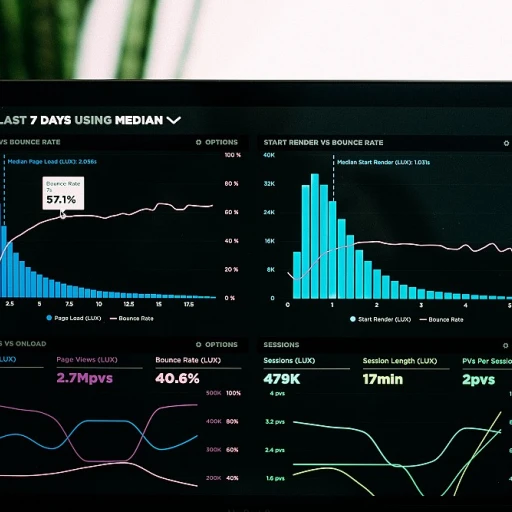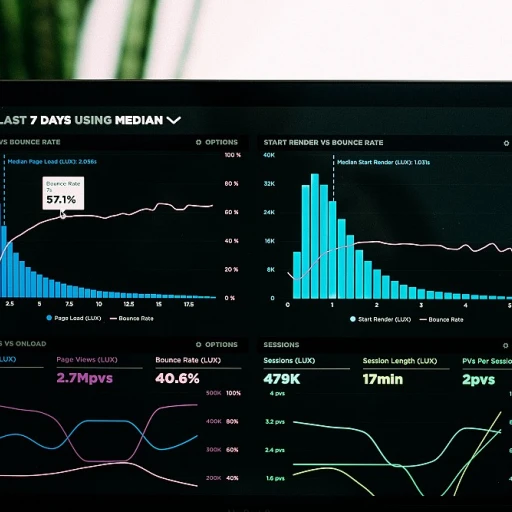Understanding AI in SEO for Online Food Sales
AI's Role in Revolutionizing SEO for Food Businesses
Artificial intelligence (AI) has become a cornerstone in enhancing search engine optimization (SEO) strategies, especially for businesses in the online food sector. With the growing demand for food delivery services and online ordering systems, leveraging AI can significantly impact restaurant sales and customer satisfaction. Understanding how AI integrates with SEO can help businesses increase online orders and improve their overall performance.
Enhancing Search Visibility with AI
AI technologies are transforming how restaurants and food delivery apps optimize their content for search engines. By analyzing search patterns and trends, AI tools can help identify the most effective keywords to target, ensuring that your online food business appears prominently in search results. This is crucial for attracting customers who are looking for specific food items or delivery services in real time.
Optimizing Content for Better Engagement
AI can also assist in creating and optimizing content that resonates with potential customers. By understanding user intent and behavior, AI-driven tools can suggest content adjustments that make your menu items more appealing and relevant to your audience. This not only improves your search rankings but also enhances the user experience, encouraging more online orders.
For more insights on leveraging AI in your SEO strategy, consider exploring effective product voting campaigns that utilize AI for better engagement.
Leveraging AI for Keyword Optimization
Optimizing Keywords with AI for Better Visibility
In the competitive world of online food sales, leveraging AI for keyword optimization can significantly enhance a restaurant's visibility. AI-driven tools analyze vast amounts of data to identify the most effective keywords that can drive traffic and increase online orders. This process involves understanding customer search behavior and trends, which helps in selecting keywords that resonate with potential customers looking for food delivery options.
AI technologies can process real-time data from various sources, including social media and search engines, to predict which keywords are likely to perform well. This predictive capability allows businesses to stay ahead of trends, ensuring their menu items and services appear prominently in search results. As a result, restaurants can attract more customers to their online ordering systems, boosting sales and enhancing customer satisfaction.
Enhancing Keyword Strategy with AI Insights
AI tools not only help in identifying the right keywords but also assist in optimizing their placement across digital platforms. By analyzing customer interactions and feedback, AI can suggest improvements to the keyword strategy, ensuring it aligns with the evolving preferences of the target audience. This dynamic approach to keyword optimization helps businesses maintain a competitive edge in the crowded online food delivery market.
Moreover, AI can automate the monitoring of keyword performance, providing valuable insights into which terms are driving the most traffic and conversions. This data-driven approach allows businesses to refine their strategies continuously, ensuring that their online presence is always optimized for maximum impact.
For further insights into how AI can boost your business's growth through SEO, explore this resource on AI in SEO.
Personalization through AI: Tailoring User Experience
Crafting Personalized User Experiences with AI
In the highly competitive online food industry, providing a personalized experience is essential to capturing and retaining customer interest. With artificial intelligence at the forefront, businesses can now analyze a myriad of data points in real time to offer tailored experiences, enhancing customer satisfaction and driving restaurant sales. AI-driven personalization utilizes data from previous food orders, apps, social media interactions, and even the time of day to make informed predictions about customer preferences. This information helps online food businesses curate personalized menus, suggesting items that are more likely to be ordered by specific customers. Employing such techniques in your ordering system can lead to a significant increase in online orders. Moreover, machine learning algorithms can assess patterns and customer behavior, providing insights into which menu items are frequently ordered through delivery apps. Restaurants can leverage these insights to modify their offerings, target advertising more effectively, and streamline their order management processes, ultimately reducing the need for third-party delivery services. Incorporating this system into your delivery app development can drastically enhance the user interface, making it more intuitive and capable of adapting to individual customer preferences over time. This level of personalization not only boosts customer satisfaction but also fosters customer loyalty, encouraging repeat orders. For those seeking to optimize their food delivery apps, engaging in social engagement optimization can be particularly beneficial. By creating a dynamic ordering experience that responds to real-time trends and personal preferences, restaurants can significantly increase their business' sales and the effectiveness of their online ordering platforms. For more insights, explore the role of social engagement in SEO and customer interactions.AI-Powered Analytics for Predictive Insights
Predictive Insights: The Power of AI-Driven Analytics
In the competitive world of online food sales, understanding customer behavior and market trends is crucial for increasing orders and boosting restaurant sales. AI-powered analytics offer a transformative approach by providing predictive insights that can help businesses make informed decisions.
AI systems analyze vast amounts of data in real time, offering insights into customer preferences and predicting future trends. For instance, by examining historical order data and current market conditions, AI can forecast which menu items are likely to be popular at certain times. This allows restaurants to optimize their menu and ordering system, ensuring that they have the right items available when demand spikes.
Moreover, AI analytics can help identify patterns in online orders, such as peak ordering times or popular delivery app usage, allowing businesses to allocate resources efficiently. This not only enhances customer satisfaction by reducing wait times but also maximizes sales during high-demand periods.
By integrating AI into their order management and app development strategies, restaurants can also track the effectiveness of their marketing efforts, such as promotions on social media or collaborations with third-party delivery apps. This level of insight helps businesses refine their strategies, leading to an increase in online food orders and overall restaurant sales.
Ultimately, AI-powered analytics provide a competitive edge by enabling restaurants to anticipate customer needs and adapt to changing market conditions, ensuring they remain at the forefront of the online food delivery industry.













